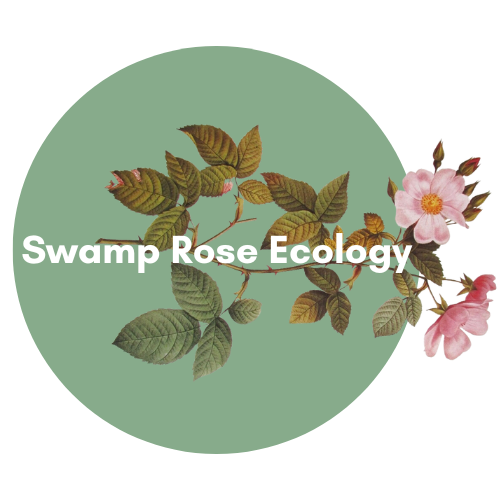
Frequently Asked Questions

Q: How do you permanently remove Himalayan blackberry and other noxious weeds without the use of herbicide?
A: We apply the same standardized best practices for organic removal that have been used by governments and researchers for decades. They typically include a combination of actions such as cutting back growth, digging out root crowns, applying layers of organic matter over mechanically removed vegetation, and/or the reintroduction of native species to compete with their invasive counterparts. The methods employed vary according to species present, project timelines, budgets and geomorphology.
Q: I don’t have a forest or wetland on my property, it’s a classic lawn. Do you work on projects like that?
A: Absolutely! One of the primary reasons that Swamp Rose was founded is to address a lack of qualified providers for professional ecological restoration and consulting for residential clients (as well as nearly everywhere outside of conservation easements and public lands). There is a huge potential for conservation on privately owned plots, as they can not only provide habitat for resident birds, pollinators and other wildlife but also corridors in which more nomadic and migratory species can shelter from the perils of human development. Habitat restoration on one’s own property is one of the most active ways to help modern society and the natural world coexist.
Q: What is your service area?
A: Primarily Northwest Oregon and Southwest Washington, but projects throughout the Pacific Northwest and Northern California will be considered as scheduling allows.
Q: How do you differ from a landscaping company?
A: We are an ecological consulting firm. For any project there will be at least one experienced, college-educated ecologist (with a relevant degree) present at all times. Our staff have a sophisticated understanding of ecosystems and how they work. This allows Swamp Rose to develop and implement effective and sustainable long-term solutions to address issues like noxious weed removal and habitat improvement.
Q: Do you use gas-powered power tools?
A: No. We take our commitment to sustainability seriously, and electric forestry tools on the market have in many ways surpassed the performance of gas-powered tools. All of the tools that we use at Swamp Rose are powered by either electricity or physical movement. In addition to decreasing emissions, an added benefit of this is the reduced noise caused by electric power tools when their use is necessary.
Q: What are some environmental issues that I can address on my property?
A: Being mindful of water consumption is a big one, as is making sure that pollinators are well taken care of by having enough native flowering plants blooming throughout the year.
Bat houses are immensely important and don't get as much attention as more charismatic environmental issues. They help bolster bat populations, which control mosquitos and other pests. Additionally, while the fungal disease White Nose Syndrome (WNS) hasn't yet reached Oregon, it is steadily creeping west from eastern states. There is no cure, but making sure that the Northwest's bat populations are as robust as possible is a necessary measure to mitigate damage from WNS when it inevitably arrives. Oregon’s bats need as much help as they can get, as 8 of the state’s 15 bat species have conservation protections. Bat houses are relatively easy to construct, and provide a substitute for places that they would normally shelter like hollowed-out trees that are no longer common in areas that humans have developed. Without natural habitat or bat houses, many bats roost in homes where they may be viewed as vermin and exterminated regardless of protections placed on some species by the state.
As is becoming common knowledge, avoiding pesticides (including herbicides) whenever possible is also key as they can harm pollinators, soil health, amphibians, non-target plants and a frankly staggeringly wide array of other life.
Q: How can I reduce my water consumption?
A: By replacing the highly consumptive, non-native and frequently invasive plants comprising a site's plant community (i.e. ornamental lawns and gardens) with native vegetation that has adapted to live in the Northwest. Many of the species that benefit local ecosystems also need very little supplemental water in addition to natural precipitation, if any at all.
Please email dkrumm@swamproseecology.com with any relevant questions or comments.
